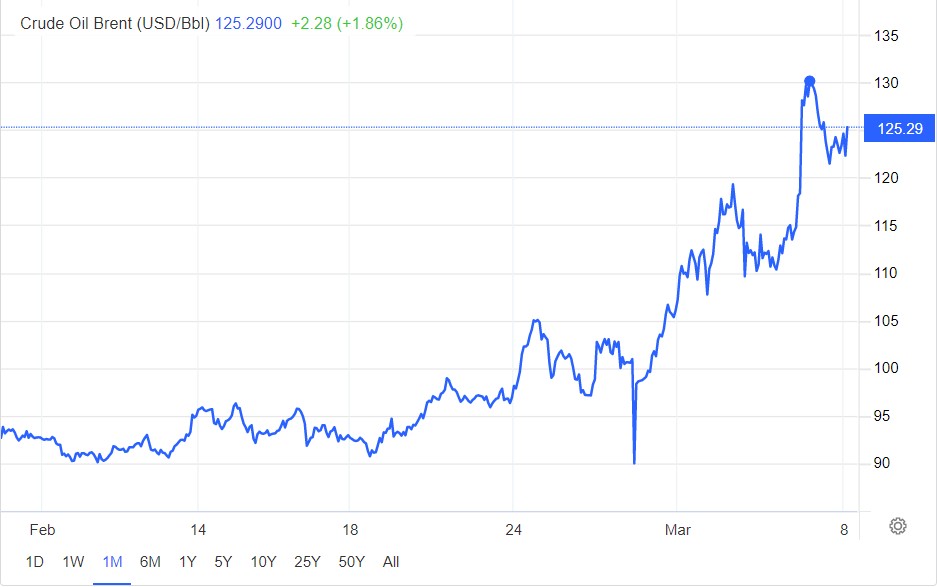Yesterday (7 Mar), Moscow issued a list of countries and territories that have “committed unfriendly actions” against Russia.
Naturally, Singapore was included among the aforesaid countries, given the wide range of sanctions that the country imposed on Russia, all the way to intellectual and cyber assets such as Non-Fungible Tokens (NFTs).
In fact, if you want a more in-depth summary of what Singapore thinks of Russia, and the actions that our country intends to take, you can watch this video here:
Causes and Consequences
Henceforth, any corporate deals with companies and individuals from these “unfriendly countries” need to get approval from a government commission first, according to a Reuters report.
Honestly speaking, it sounds like the Kremlin government has pulled a whole bunch of countries into the blacklist and is officially announcing it on social media.
With the “If you want access to my landscape photographs again and my resources, you need to get me to unblock you first!” kind of teenager mentality vibe.
It feels childish, but Russia is basically akin to a social pariah right now, having to sit alone in the corner of the cafeteria, next to the garbage bin.
After Russia invaded Ukraine on 24 February, many Western countries and other territories declared a wide range of hard-hitting economic sanctions against Russia.

For Singapore, proactively imposing sanctions before any resolution was passed in the United Nations was a first, but a necessary step in the eyes of the government.
During a parliament speech on 28 February, Foreign Minister Vivian Balakrishnan announced that export controls will be placed on items that can directly or indirectly be used to harm Ukraine, in addition to certain financial sanctions of Russia.
Similarly, Singapore had co-sponsored the United Nations (UN) General Assembly’s resolution that “deplores in the strongest terms the aggression by the Russian Federation” against Ukraine.
In his Ministerial Statement, Dr Balakrishnan adds, “We cannot accept one country attacking another without justification arguing that its independence was the result of ‘historical errors and crazy decisions’. Such a rationale would go against the internationally recognised legitimacy and territorial integrity of many countries, including Singapore.”
Therefore, a strong stance was necessary, and it was justly served, regardless of the consequences.
Join our Telegram channel for more entertaining and informative articles at https://t.me/goodyfeedsg or download the Goody Feed app here: https://goodyfeed.com/app/
Significant Impacts on Singapore
Presently, the economic impact of the Russo-Ukrainian conflict has been deeply felt by the international market through the Brent crude oil prices.
On the day of Russia’s invasion (24 Feb), the prices of crude oil soared to $105 per barrel from $91.96 the previous day.

The price continues to climb despite the United States (US) and 30 other countries’ promise to increase the international supply of oil by 60 million barrels, reaching $130.40 per barrel on 7 March.
According to Trade and Industry Minister Gan Kim Yong, the first elements to be affected are inflationary pressures and an increase in prices of oil-related items.
The Russo-Ukrainian crisis will “significantly impact” Singapore through the higher energy costs, especially since our small island imports most of its energy needs.
Drivers and motorists will probably see a rise in prices for petrol and diesel.
For households and businesses, the electricity rates in their utility bills will see an increase as well.
Global supply chains will be strained even further, since Russia and Ukraine are major exporters of commodities like wheat and metals.
For Russia in particular, it produces nearly 50% of the global demand for natural gases and is the second largest oil producer besides Saudi Arabia.
There is a price to pay for sanctions, and it’s apparent that we’re living in that reality now.
Buckle up readers, because if the conflict continues to drag on, the economic effects will only worsen.
Read Also:
- Prepare for Even Higher Petrol Price As US & Europe Decide on a Russian Oil Import Ban
- An HDB Flat Has So Many Cockroaches That ‘Hundreds’ of Them Crawled Out From Its Potted Plants
- Some Foreign Media in Russia Halt Operations As Law to Jail Journalist for ‘Fake news’ is Passed
- New VDS Options for Dine-In in Coffeeshops / Canteens to Start from Tomorrow (7 Mar)
Featured Image: Facebook (Lee Hsien Loong)
Would you be jailed for being half-naked in public? Well, the answer will shock you. Seriously. Watch this to the end and you'll understand:




